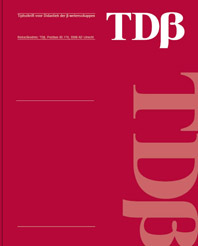Het effect van wiskundig onderzoek door leerlingen op de groei van hun probleemoplossend vermogen Het effect van wiskundig onderzoek door leerlingen op de groei van hun probleemoplossend vermogen

Tijdschrift voor Didactiek van de Beta-wetenschappen, uitgegeven door het Freudenthal Instituut, Universiteit Utrecht in de periode 1983-2014 |
Van der Kolk-den Heijer, T.
Tijdschrift voor Didactiek van de Beta-wetenschappen |
The PISA score on problem solving of Dutch students leaves to be desired. To advance the development of their problem solving abilities, mathematical activities are needed that stimulate both the extension of their repertoire of usable problem-solving strategies and the reflection on their problem-solving approach. For this purpose, inquiry-based learning activities seem to be suitable. These activities boost students’ thinking about problem situations and ways to solve these. The effect of taking part in some inquiry-based learning activities is measured by the registration of the strategies that students employ in solving the Isis problem. The results of two groups of twenty students, of which only the students of the second group participated in inquiry-based learning activities, have been compared. Taking part in some inquiry-based learning activities seems to have a positive effect on the number of successfully applied strategies and on the problem-solving approach of students. Therefore, adding inquiry-based learning activities, such as open questions combined with a reflection on the chosen problem-solving approach, as a part of the regular activities is recommended.
U moet ingelogd zijn om een reactie te kunnen plaatsen.


